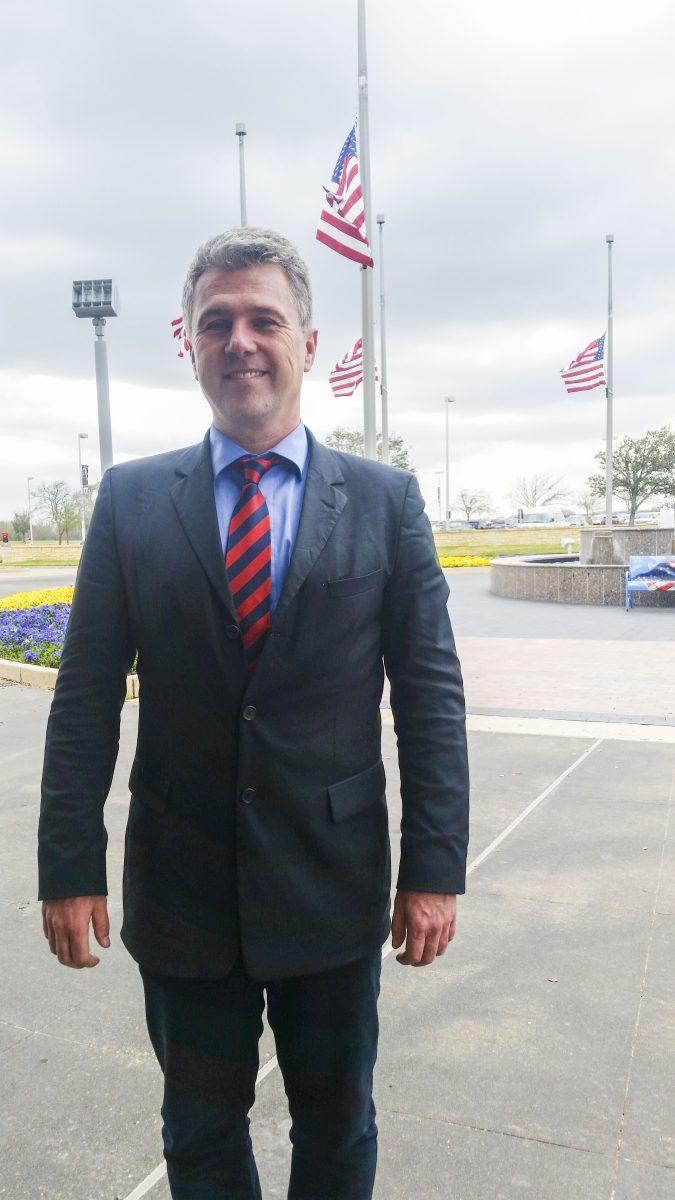Reuters journalist Erik Kirschbaum delved into Germany’s role in the refugee crisis during his lecture Tuesday.
The European Union, formed in 1993, consists of 28 member countries. Despite years of progress, the sudden calamity of Germany’s refugee crisis threatens to tear the EU apart.
Tuesday’s lecture, entitled “Europe’s Refugee Crisis,” was the first of the Texas A&M European Union Center’s three-part series on changes in 21st century Europe. Kirschbaum’s presentation centered around information associated with the German refugee crisis — logistics, plans for the future, current concerns and the resulting tension among EU nations.
“There’s no end in sight right now to the crisis,” Kirschbaum said. “Germany is trying very hard to find joint solutions with Turkey, is trying to get the EU to pay a lot of money to Turkey to accommodate the refugees there. German Chancellor Merkel is politically in a lot of trouble at the moment because of this.”
Kirschbaum said the turmoil of the refugee crisis carries over to matters concerning the Shengen Agreement, a treaty which led to the creation of the Shengen Area, a borderless region in Europe. The passport-free nature of the Shengen Area allows business throughout the EU to flourish, but the accessibility of these routes is threatened. In an attempt to stem the flow of refugees through the EU, some EU leaders have suggested reinforcing the borders around the Shengen Area or even shrinking the number of countries the Shengen Agreement covers.
Kirschbaum said this issue has the potential to cause massive problems for the EU.
“The EU could fall apart over something like this,” Kirschbaum said. “I never would have dreamed that would have been possible, that this could pull the EU apart and turn it into a bickering continent again. Everybody thought that this was something the EU had left behind.”
Despite the tumult occurring in Europe, Kirschbaum said America has taken a very passive, hands-off stance regarding the refugee issue. Bernd Reindl, deputy consul general of the Republic of Germany Houston who attended the lecture, said educating Americans on the problems Germany faces can elicit rewarding results.
“[Germany] needs the United States in Europe to strengthen and to foster this transatlantic relationship between the U.S. and Europe, between the U.S. and Germany,” Reindl said.
Darienne Davis, an international studies junior who attended the event, said she was surprised to learn how large of a role Germany is playing in the refugee crisis.
“I was impressed because I had the misled idea that Germany was taking a more conservative stance on the refugee crisis and was trying to stay out of it,” Davis said. “But it’s really cool to see that Germany is taking a stance and hopefully will lead the way in this whole debate over the EU and what they should do about it.”
The next seminar in the lecture series will be held March 8, and will discuss NATO’s current role in Europe.










